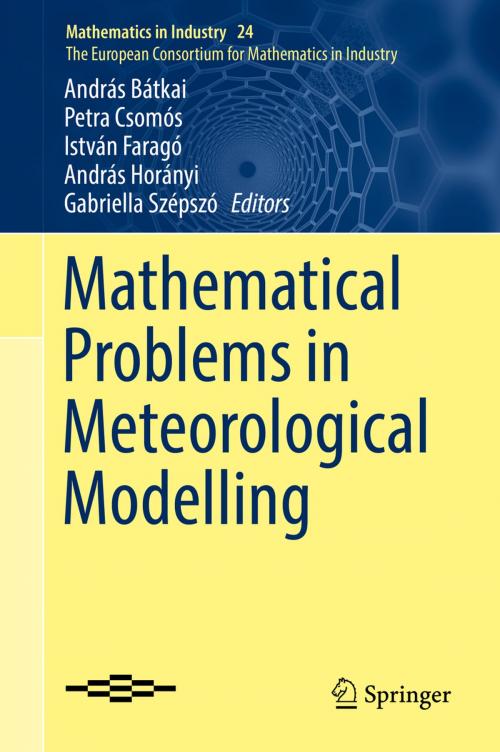Mathematical Problems in Meteorological Modelling
Nonfiction, Science & Nature, Mathematics, Applied, Computers| Author: | ISBN: | 9783319401577 | |
| Publisher: | Springer International Publishing | Publication: | November 8, 2016 |
| Imprint: | Springer | Language: | English |
| Author: | |
| ISBN: | 9783319401577 |
| Publisher: | Springer International Publishing |
| Publication: | November 8, 2016 |
| Imprint: | Springer |
| Language: | English |
This book deals with mathematical problems arising in the context of meteorological modelling. It gathers and presents some of the most interesting and important issues from the interaction of mathematics and meteorology. It is unique in that it features contributions on topics like data assimilation, ensemble prediction, numerical methods, and transport modelling, from both mathematical and meteorological perspectives.
The derivation and solution of all kinds of numerical prediction models require the application of results from various mathematical fields. The present volume is divided into three parts, moving from mathematical and numerical problems through air quality modelling, to advanced applications in data assimilation and probabilistic forecasting.
The book arose from the workshop “Mathematical Problems in Meteorological Modelling” held in Budapest in May 2014 and organized by the ECMI Special Interest Group on Numerical Weather Prediction. Its main objective is to highlight the beauty of the development fields discussed, to demonstrate their mathematical complexity and, more importantly, to encourage mathematicians to contribute to the further success of such practical applications as weather forecasting and climate change projections. Written by leading experts in the field, the book provides an attractive and diverse introduction to areas in which mathematicians and modellers from the meteorological community can cooperate and help each other solve the problems that operational weather centres face, now and in the near future.
Readers engaged in meteorological research will become more familiar with the corresponding mathematical background, while mathematicians working in numerical analysis, partial differential equations, or stochastic analysis will be introduced to further application fields of their research area, and will find stimulation and motivation for their future research work.
This book deals with mathematical problems arising in the context of meteorological modelling. It gathers and presents some of the most interesting and important issues from the interaction of mathematics and meteorology. It is unique in that it features contributions on topics like data assimilation, ensemble prediction, numerical methods, and transport modelling, from both mathematical and meteorological perspectives.
The derivation and solution of all kinds of numerical prediction models require the application of results from various mathematical fields. The present volume is divided into three parts, moving from mathematical and numerical problems through air quality modelling, to advanced applications in data assimilation and probabilistic forecasting.
The book arose from the workshop “Mathematical Problems in Meteorological Modelling” held in Budapest in May 2014 and organized by the ECMI Special Interest Group on Numerical Weather Prediction. Its main objective is to highlight the beauty of the development fields discussed, to demonstrate their mathematical complexity and, more importantly, to encourage mathematicians to contribute to the further success of such practical applications as weather forecasting and climate change projections. Written by leading experts in the field, the book provides an attractive and diverse introduction to areas in which mathematicians and modellers from the meteorological community can cooperate and help each other solve the problems that operational weather centres face, now and in the near future.
Readers engaged in meteorological research will become more familiar with the corresponding mathematical background, while mathematicians working in numerical analysis, partial differential equations, or stochastic analysis will be introduced to further application fields of their research area, and will find stimulation and motivation for their future research work.















